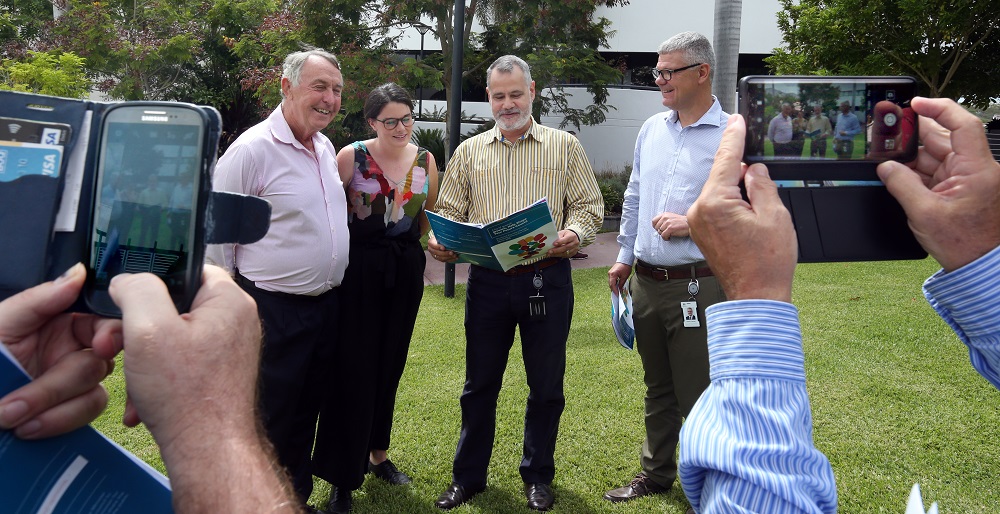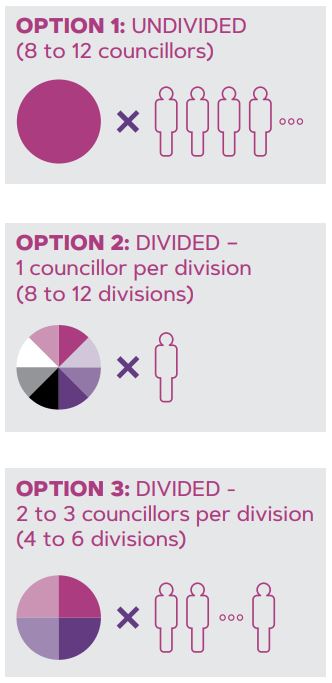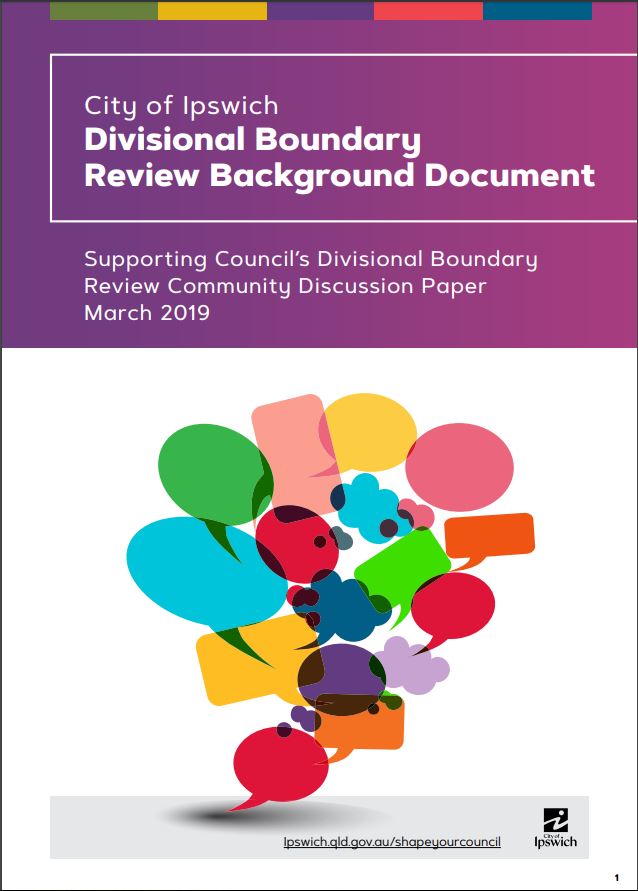
Ipswich business owner Peter McMahon, Redbank Plains Community Centre manager Rose Dash, Ipswich City Council Interim Administrator Greg Chemello and Ipswich City Council CEO David Farmer at the launch of the discussion paper.
The people of Ipswich are being encouraged to have their say about how the city’s council will be represented at the March 2020 elections and beyond.
A discussion paper, launched today, offers three options on divisional boundaries for consideration, with each model resulting in a minimum of eight councillors and maximum of 12 councillors being elected:
- Undivided
- Divided – 1 councillor per division (8 to 12 divisions)
- Divided – 2 or 3 councillors per division (4 to 6 divisions)
Interim Administrator Greg Chemello said there was no better time for people of the city to have a say about the future of their council.
“This is a time to openly consider and debate how you would like to be represented by your future Ipswich Council in 2020 and beyond,” Mr Chemello said.
“Would you prefer your councillors to be elected on a divisional basis or across the entirety of the local government area?” the discussion paper asks.
The discussion paper cites a CCC report, titled “Culture and corruption risks in local government: Lessons learned from an investigation into Ipswich City Council (Operation Windage)”, as one of the motivations for community discussion and debate.
It acknowledges that the community’s trust and confidence in council has been severely tested.
“We’ll be engaging in a month-long engagement process which will include a public forum on March 25, from 6:00pm until 7.30pm,” Mr Chemello said.
“At this forum, we’ll be inviting elected representatives from other cities to speak about each of the models, and to talk openly about the advantages and disadvantages of each.
“The discussion paper also talks about the often perceived pros and cons of each model, so we encourage people to read through it, and share with us which way they would like council to go.”
In April, Ipswich City Council will present findings of the community engagement period to the State Government, which is ultimately responsible for any changes to the way council is structured.




4.5
My option is No 2 but I can’t find a link to officially record this.
Option 3 is a good option. But what happens if state council reject the survey and continue with existing option.
Will you closely monitor the council to make sure the corruption won’t happen again.